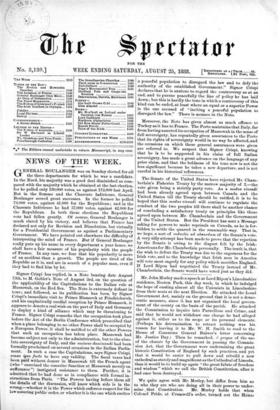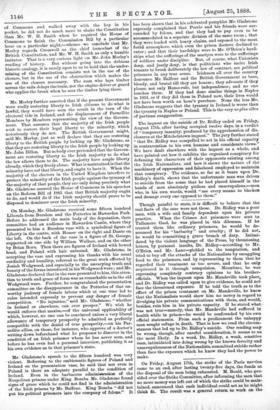We quite agree with Mr. Morley, but differ from him
as to who they are who are doing all in their power to under- mine that Constitution. Mr. Morley holds that when Colonel Pride, at Cromwell'a order, turned out the Howe
of Commons and walked away with the key in his pocket, he did not do much more to shake the Constitution than Mr. W. H. Smith when he required the House of Commons to finish the Commission Bill by a particular hour on a particular night,—whence we conclude that Mr. Morley regards Cromwell as the chief iconoclast of the British Constitution, and Mr. W. H. Smith as only a humble imitator. That is a very curious light on Mr. John Morley's reading of history. But without going into the dubious historic analogy, it is surely open to us to hold that the under- mining of the Constitution consists not in the use of the closure, but in the use of the obstruction which makes the use of the closure necessary. The man who lays timber across the rails delays the train, not the engine-driver or guard who applies the break when he sees the timber lying there.



































